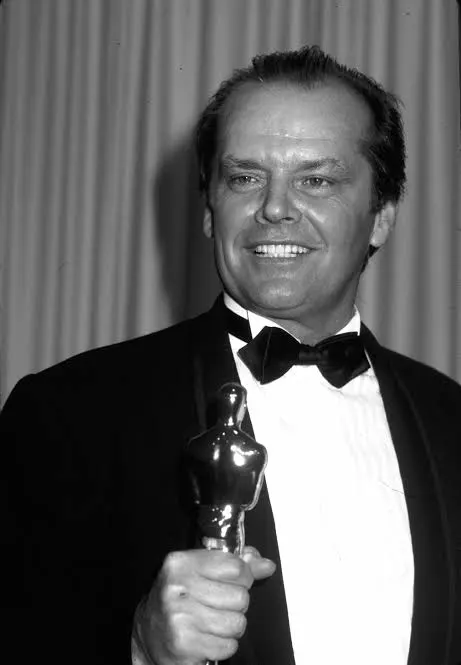Jack Nicholson (born April 22, 1937, Neptune, New Jersey, U.S.) is one of the most prominent American motion-picture actors of his generation, especially noted for his versatile portrayals of unconventional, alienated outsiders.
Early life and career
Nicholson, whose father abandoned his family, grew up believing that his grandmother was his mother and that his mother was his older sister; it was not until he had attained fame that Nicholson himself learned the truth. After graduating from high school, he moved to California, where he took an office job in Metro-Goldwyn-Mayer’s animation department. During the years 1957–58 he performed on stage with the Players Ring Theater in Los Angeles and landed some small roles on television. About this time he met B-film king Roger Corman, who offered him the leading role in his low-budget film The Cry Baby Killer (1958). Nicholson spent the next decade playing major roles in B-films (including several more for Corman), occasional supporting roles in A-films (such as Ensign Pulver, 1964), and guest roles on such television series as The Andy Griffith Show. He also dabbled in screenwriting, with his best-known credits being Corman’s LSD-hallucination film The Trip (1967) and the surrealistic romp Head (1968), a box-office failure starring the Monkees that has since attracted a cult following.
Nicholson’s big break finally came with Easy Rider (1969), a seminal counterculture film starring Peter Fonda and Dennis Hopper as drifting, drug-dealing bikers and Nicholson in a scene-stealing, Oscar-nominated supporting performance as an alcoholic lawyer. Nicholson’s newfound stardom was secured with his leading role in Five Easy Pieces (1970), an episodic, existentialist drama and a major entry in Hollywood’s “art film” movement of the early 1970s. Nicholson’s portrayal of a man alienated from his family, friends, career, and lovers garnered him an Oscar nomination for best actor. His next successful film, director Mike Nichols’s Carnal Knowledge (1971), was a darkly humorous condemnation of male sexual mores; it was perhaps mainstream Hollywood’s most sexually explicit film to date. Nicholson’s performance as an emotionally empty, predatory chauvinist showcased his talent for interjecting humour into serious situations as a means to underscore inherent irony—typically, his darkest characters are wickedly funny.
Nicholson earned another Oscar nomination for The Last Detail (1973), in which he portrayed a rowdy military police officer who reluctantly escorts a young sailor to military prison. He next starred in Roman Polanski’s Chinatown (1974), an homage to the film noir detective films of the 1940s and a widely acknowledged cinematic masterpiece. Nicholson’s brilliant performance as stylish private eye Jake Gittes, who realizes too late his impotence in the face of wealth and corruption, earned him a fourth Oscar nomination. The actor capped this highly successful period with his first Oscar win, for One Flew over the Cuckoo’s Nest (1975), in which his iconoclastic, free-spirited characterization of mental institution inmate R.P. McMurphy serves as a metaphor for the hopelessness of rebellion against established authority. Other notable Nicholson films from this period included Michelangelo Antonioni’s Professione: reporter (1975; The Passenger), in which Nicholson portrays a depressed reporter who assumes a dead man’s identity, and Tommy (1975), director Ken Russell’s garish production of the Who’s rock opera, featuring Nicholson in a supporting singing role as the title character’s doctor.
His stardom assured, Nicholson worked sporadically during the next few years. He costarred with Marlon Brando in the Arthur Penn western The Missouri Breaks (1976), an uneven yet compellingly quirky film; and he directed and starred in another revisionist western, Goin’ South (1978). His next notable role was in director Stanley Kubrick’s The Shining (1980); an adaptation of the Stephen King novel, it is a film over which critical opinion remains divided but the one with Nicholson’s ax-wielding rampage—culminating in his demonic cry of “Heeeere’s Johnny!”—that became one of the indelible cinematic images of the era. Nicholson appeared in several quality films during the 1980s, garnering further Academy Award nominations for Reds (1981), Prizzi’s Honor (1985), and Ironweed (1987) and winning a best supporting actor Oscar for his role as a drunken-but-decent ex-astronaut in Terms of Endearment (1983). Two of his most popular performances of the decade came in The Witches of Eastwick (1987) and Batman (1989), which featured Nicholson’s over-the-top comic turns as the Devil and the Joker, respectively.




